
THREAD: costco strike threat what means
LifeLine™ Media threads use our sophisticated algorithms to construct a thread around any topic you want, providing you with a detailed timeline, analysis, and related articles.
News Timeline

UPS LAYOFFS Spark Fear: American Jobs At Risk From Trade Shock
— UPS just announced it will lay off 20,000 workers and shut down 73 buildings. The company blames falling package numbers and new tariffs for the cuts. UPS hopes to save $35 billion as Amazon sends fewer shipments after recent trade changes.
Amazon is also under stress. Many sellers are piling up extra inventory to avoid shipping delays, but this is only a short-term fix. Even Amazon’s cloud service isn’t doing as well as some of its competitors.
Other big names like McDonald’s and General Motors have warned that sales could drop because of tariff worries. Chinese shopping app Temu is now trying to work with more American sellers to get around these rules.
In retail news, Kohl’s fired CEO Ashley Buchanan over business deals tied to his girlfriend. These changes show how trade policies can shake up everything from shipping companies to major retailers across America.
TRUMP’S Auto Import Tarifs Spark Fears And Rattle Markets
— Swiss bank UBS has cut its S&P 500 forecast for the end of 2025 from 6,600 to 6,400 points. This comes after President Trump announced new 25% tariffs on imported cars. Many worry these tariffs could start a bigger global trade fight. Still, UBS’s Mark Haefele says there is “meaningful upside” for U.S. stocks this year.
The new tariffs have shaken investors in the U.S., Asia-Pacific, and Europe. President Trump stands firm on his decision. He said he “couldn’t care less” if automakers raise prices and believes Americans will buy more cars made at home.
Markets worldwide are reacting fast to the news. The MSCI world stock index fell by 4.5% in March — the worst drop since September 2022. JPMorgan’s Bruce Kasman now says there is a 40% chance of a recession.
Investors face more risk as these bold trade moves take effect under Trump’s America-first plan. Wall Street is watching closely to see how this will impact jobs and growth in the months ahead.
US-CHINA IMPORT Tariffs Spark Fear and Chaos for Businesses
— A new 50% tariff on Chinese goods like smartphones and batteries will slam American businesses starting April 2025. This is the latest move in a trade fight that began with President Trump’s tough stance on China, which included a massive 145% tariff. Now, companies from small shops in Vermont to big airlines like Delta warn of higher prices and supply chain headaches.
Goldman Sachs CEO David Solomon says business leaders would prefer lower tariffs, but many understand the need to protect U.S. interests. The European Union has blasted these tariffs as harmful taxes that could shake up the global economy.
Small businesses are struggling too. Some local shops using American-made products may not feel much pain, but many others report shrinking profits and less hope for growth, according to the National Federation of Independent Business.
Stock markets have dropped as worries grow over what comes next. Export-heavy countries like Germany are also feeling pressure as U.S. trade policies send shockwaves around the world. This story is still unfolding as businesses watch for more changes ahead.

TRUMP’S “Liberation DAY” Shocks Markets: Wall Street Reels as Tariffs Spark Global Showdown
— President Trump’s “Liberation Day” tariffs have rocked the markets. The Dow dropped more than 2,000 points on some days. The S&P 500 and Nasdaq both fell into bear market territory. These tariffs, reaching up to 125% for some countries, are the highest seen in a hundred years. China, the EU, and Japan are feeling the pain most. China hit back with its own tariffs on American goods. Japan’s finance minister warned of global trouble ahead. Still, US officials say they’re hopeful about future trade talks. Big companies are taking hits too. CarMax shares sank after weak earnings reports. Nvidia tumbled more than 20% from its high point this year. UnitedHealth lowered its profit forecast because Medicare costs keep rising. Experts think this wild ride will last until trade fights settle down. Some industries are holding up better than others under pressure. The Federal Reserve might cut rates three times this year if things get worse — some warn a financial crisis could happen if tariff chaos continues much longer.

US TRADE Policies Cause GLOBAL Economic Jitters
— Recent U.S. tariffs have left Canadian small businesses facing economic challenges, leading to job cuts and price hikes. The Canadian Federation of Independent Business reports nine percent of owners have issued layoff notices due to these tariffs. Businesses are raising prices by an average of 3.7 percent this month as they struggle with rising costs and decreased consumer spending.
In Alberta, business leaders feel cautiously optimistic after avoiding new U.S.-imposed tariffs that threatened the energy sector. Adam Legge from the Business Council of Alberta feels relieved but remains wary about future trade developments under current policies.
President Trump’s tariff strategy aims to equalize import taxes with those imposed by other nations, sparking debate over its economic impact on sectors like agriculture and manufacturing. Meanwhile, Japan’s Prime Minister Shigeru Ishiba expressed disappointment over Japan’s exclusion from tariff exemptions and plans support for affected industries domestically.
These developments highlight growing concerns about global economic instability driven by U.S. trade policies, particularly affecting small businesses worldwide as they navigate uncertain financial landscapes.

STOCK MARKET Chaos: US Faces Economic Fears as Tariffs Loom
— U.S. stocks took a nosedive today as President Donald Trump’s “Liberation Day” approaches, bringing potential tariffs on Canadian steel and aluminum imports. Analysts warn these tariffs could trigger a market downturn and increase recession risks. Wolfe Research has already revised U.S. growth estimates for 2025 down to 1.6%.
Retail giant Kohl’s experienced its worst trading day since 1992, with stocks tumbling by 26% after issuing disappointing guidance for the year. Investor anxiety is also heightened by an upcoming House vote on a stopgap funding bill, adding to market volatility.
The Dow Jones Industrial Average has fallen 8.3% from its peak, raising concerns about the tech sector’s performance compared to the S&P 500. Investors are bracing for further shifts as policy decisions unfold in the coming days amid fears of reduced earnings across sectors due to new tariffs and declining consumer confidence.

“Hudson’s Bay COLLAPSE: 9,000 Jobs in JEOPARDY”
— Hudson’s Bay Company, Canada’s oldest business, plans to liquidate by June. Unable to secure financing, the company will shut down all operations. This decision puts over 9,000 jobs across Canada at risk.
The company’s financial troubles were clear in a March court filing. Hudson’s Bay delayed payments to landlords and vendors due to ongoing money problems. They initially hoped to stay open despite these issues.
Richard Baker bought Hudson’s Bay in 2008 for $1.1 billion, but it has steadily declined since then. The liquidation involves selling inventory and real estate while gradually laying off employees until mid-June.

TRUMP’S Bold Move: How NEW Tariffs Rattle the Stock Market
— U.S. stocks fell sharply as President Donald Trump’s tariffs on Canada and Mexico took effect, sparking economic fears. Investors worry about the potential impact amid existing uncertainties. Analysts warn of a possible recession, urging caution in market activities.
The S&P 500 and Nasdaq composite saw major drops, hitting technology stocks hard. Companies across sectors are revising forecasts due to these new trade policies. Experts suggest these tariffs could worsen inflation and reduce consumer spending soon.
These tariffs are part of Trump’s broader trade agenda to boost U.S. manufacturing but risk retaliatory actions that may harm American businesses and consumers. The market remains bearish as analysts closely watch for policy fallout effects.

US TRADE WAR Heats UP: China and Canada Strike Back
— China and Canada hit back at the U.S. with their own tariffs after America imposed new levies on them. This could worsen trade ties with these key partners. China set additional tariffs up to 15% on certain American goods.
Canada also announced it would impose tariffs as high as 25% in response to the U.S.'s recent actions against both countries. These moves follow America’s new tariffs targeting these nations, heightening global trade tensions.
This growing tariff battle shows the increasing economic friction between major economies under current U.S. policies. The situation is still changing, affecting international trade and domestic markets in all involved countries.

NEW DUTY Shock: Retail Prices to Skyrocket, Consumers Worried
— Retailers are raising concerns about a looming price surge. A new 25% duty on exports from Mexico and Canada is set to increase costs. This change could lead to higher prices for shoppers almost immediately.
The duty affects a wide range of goods, impacting everyday items. Retailers warn this could disrupt supply chains and limit product availability. Shoppers should brace for potential price hikes at local stores.
Efforts to ease these effects are underway, but challenges remain tough. Businesses might need new strategies to handle rising costs. The economic impact of this policy change deserves close attention from policymakers and the public alike.

CHINA STRIKES Back: US Farmers Face Uncertain Future in Trade WAR
— China swiftly hit back at new U.S. tariffs by imposing higher import taxes on $21 billion of American agricultural goods. This move ramps up tensions between the world’s two largest economies, edging them closer to a trade war.
Despite the increased tariffs, China’s futures markets stayed steady, showing strength amid this economic clash. The Chinese government has stated it won’t be cowed by these new actions from the Trump administration.
This situation highlights the growing economic rivalry and its impact on global trade relations, especially in agriculture — a vital sector for both countries. As this dispute unfolds, American farmers might struggle to keep their export markets in China.

MUSK’S Bold Move Sparks Panic Among Federal Workers
— Elon Musk’s recent demand for federal employees to justify their jobs has caused major unrest. Many workers feel uneasy as they rush to meet the Monday night deadline. This is part of Musk’s larger plan to reshape the U.S. government, leading to widespread confusion and anxiety among federal staff.
The Trump administration clarified that federal agencies don’t have to comply with Musk’s job justification request. This update came after initial confusion, leaving many employees unsure about their duties. Despite this clarification, tensions remain high as workers deal with mixed messages and tight deadlines.
In related news, President Trump appointed Dan Bongino as deputy FBI director under new Director Kash Patel. Meanwhile, the acting IRS commissioner is expected to retire soon, adding more uncertainty within federal ranks. These changes are part of efforts by Musk and the administration to streamline government operations and cut costs.
Federal employees now face a tough week filled with uncertainty from new directives and leadership changes. As they handle these challenges, questions linger about their future roles in a changing government landscape influenced by figures like Elon Musk and President Trump’s administration.

TRUMP’S Bold Move: Ending Canadian Trade Loophole Shakes Up Business
— Canadian businesses are facing new challenges as the U.S. ends the “de minimis” rule for duty-free imports. This change, driven by former President Donald Trump’s executive order, will now impose tariffs on goods that were previously exempt due to their low value.
Sheena Russell, founder of Made with Local in Dartmouth, N.S., is worried about rising costs affecting her snack food business. With the executive order taking effect next month, companies are bracing for higher expenses and more administrative hurdles.
This development comes when businesses are already dealing with various economic pressures. The end of this loophole is expected to cause a demand shock as Canadian companies adjust to the new trade landscape.

TRUMP’S Bold Trade WAR: New Tariffs Spark Economic Jitters
— President Donald Trump has announced a 25% tariff on goods from Canada and Mexico, and a 10% tariff on Chinese products. This bold move is expected to provoke retaliation, raising fears of a broader trade war. Republicans largely support the decision, but industry groups and Democrats warn of possible price hikes that could worsen inflation.
The tariffs are likely to affect multiple sectors, sparking discussions about inflationary pressures and reduced consumer spending. Economists worry about the impact on market stability and growth. The political landscape is divided, with some lawmakers backing the tariffs as protection for American industries while others worry about international relations and domestic prices.
Analysts caution that retaliatory measures could escalate tensions further, leading to an unstable economic environment if not managed carefully. This development highlights ongoing international trade tensions with significant implications for America’s future economic stability. As this situation unfolds, it remains crucial to monitor its effects on both domestic markets and global economic relations.

UPS SHARES Plummet: Bold Move to Slash Amazon Business Stuns Investors
— UPS shares dropped sharply after the company revealed plans to cut its business with Amazon in half. This move comes as UPS faces lower-than-expected revenue projections, signaling that a rise in parcel demand isn’t likely this year. To cope, UPS has been hiking prices and adding surcharges.
In a bid for bigger profits, UPS is focusing on growing its health-care segment, aiming for $20 billion in revenue by 2026. The company predicted $89 billion in revenue for 2025, which is below analysts’ expectations of $94.9 billion. In 2024, UPS reported revenues of $91.1 billion with Amazon making up 11.8% of that total.
The sudden cutback with Amazon caught many investors and analysts off guard. Daniel Imbro from Stephens Inc., noted the swift change as surprising news within industry circles. This strategic shift shows UPS’s dedication to prioritizing higher-margin ventures over volume-driven deals like the one with Amazon.
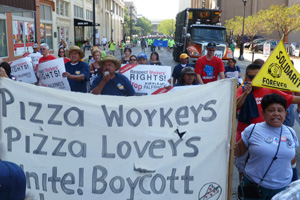
COSTCO STRIKE Threat: What It Means for Shoppers and Workers
— A potential STRIKE at Costco looms as the union representing thousands of workers votes to authorize action. This decision comes amid ongoing talks over pay and working conditions, highlighting tensions between management and labor. If unresolved, this could significantly impact Costco’s operations soon.
Elon Musk stays in the spotlight with his involvement in DOGE, a cryptocurrency dividing investor opinions. Some see it as promising, while others doubt its long-term viability. Musk’s influence keeps DOGE relevant despite fluctuating interest and value.
Netflix plans more price hikes, raising concerns about keeping subscribers amid fierce competition. As streaming services battle for dominance, Netflix’s pricing strategy could affect its subscriber base and market position. Consumers are watching closely how these changes will impact their viewing options and costs.
In pharmaceuticals, speculation surrounds the next big drug after Ozempic’s success in diabetes management. New developments suggest another breakthrough may be near, potentially transforming treatment options worldwide. The medical community eagerly awaits what could be another game-changing advancement in healthcare innovation.

CANADA BRACES for Trump’S Trade Threats: Unity in the Face of Uncertainty
— Canadian business leaders and government officials are coming together to tackle potential tariff threats from the United States under President Donald Trump. This united front aims to protect Canadian exports during ongoing trade negotiations. The meeting highlights the importance of solidarity as Canada faces these economic challenges.
Inflation rates in Canada have recently dipped below the two percent target, adding complexity to the situation. This drop raises questions about future interest rate changes, which could affect both businesses and consumers. Business Analyst Kris McCusker suggests that these developments might lead to interest rate adjustments soon.
The outcome of U.S.-Canada trade discussions could significantly change Canadian trade dynamics, making unity among stakeholders crucial. As talks progress, Canadian leaders remain focused on protecting their economic interests while preparing for any shifts in policy or market conditions prompted by U.S. actions.

— US dockworkers threaten STRIKE over automation concerns Unions representing thousands of dockworkers warn that increased automation could displace jobs, raising fears of cargo shipment disruptions and potential inflation impacts

— US Dockworkers Threaten Strike Over Automation Concerns Union leaders warn that increasing automation could lead to job losses, risking major disruptions in shipping and supply chains nationwide
— Canada Prepares Tariff Retaliation Amid Trade Tensions A Canadian government official announced that the country is considering potential tariff targets in response to ongoing trade disputes

— China SLAMS US for Expanding Export Control List, Promises Retaliation The Chinese government has criticized the United States for adding more companies to its export control list and has vowed to take countermeasures

LABOUR PARTY’S Economic Plan Under Fire: Will It Really Work?
— Britain’s new Treasury chief, Rachel Reeves, vows to run the economy with “iron discipline.” She hinted at above-inflation pay raises for public sector workers to end ongoing strikes.
The Labour Party, elected two weeks ago, faces pressure to increase salaries and welfare without raising taxes or public borrowing. Reeves criticized the previous Conservative government for high taxes and debt.
Labour won a landslide victory on promises of economic growth, housebuilding, green energy projects, and improved public services. The electorate seeks relief from high living costs and past economic mismanagement.
Inflation has dropped to 2%, but strikes by hospital doctors strain the National Health Service. Other public-sector workers like nurses and teachers have also demanded higher pay through walkouts over the past year.

— **Global Shipping Giant Alters Economic Forecast Amidst Shifting Outlook** One of the leading ocean shipping companies adjusts its global economic predictions in response to changing conditions

UK-CANADA Trade Talks GRIND to a Halt: The Beef and Cheese Battle That’s Costing Billions
— The UK government has unexpectedly put the brakes on post-Brexit trade talks with Canada. This sudden move follows a two-year stalemate over beef and cheese imports and exports, which began after Britain officially left the European Union.
Trade between these nations, valued at roughly 26 billion pounds ($33 billion) per year, has mostly persisted under the initial agreement made while Britain was still an EU member. However, Canadian negotiators are feeling the heat from their own beef industry and local cheesemakers. The former is pushing for access to the UK market for hormone-fed beef, while cheesemakers are raising alarms about tariff-free imports of British cheese.
The privilege of tariff-free British cheese exports came to a halt at the close of 2023 when a temporary agreement expired. This change led to a staggering 245% duty hike for British producers. Canada’s trade minister Mary Ng firmly stated that Canada “will never agree to a deal that isn’t beneficial for our workers, farmers and businesses.” Minette Batters, president of the National Farmers’ Union in England and Wales praised Britain’s resistance against hormone-fed beef imports.
Despite this hiccup in negotiations, the UK government remains open-minded about future discussions. However, any significant progress appears unlikely at present.
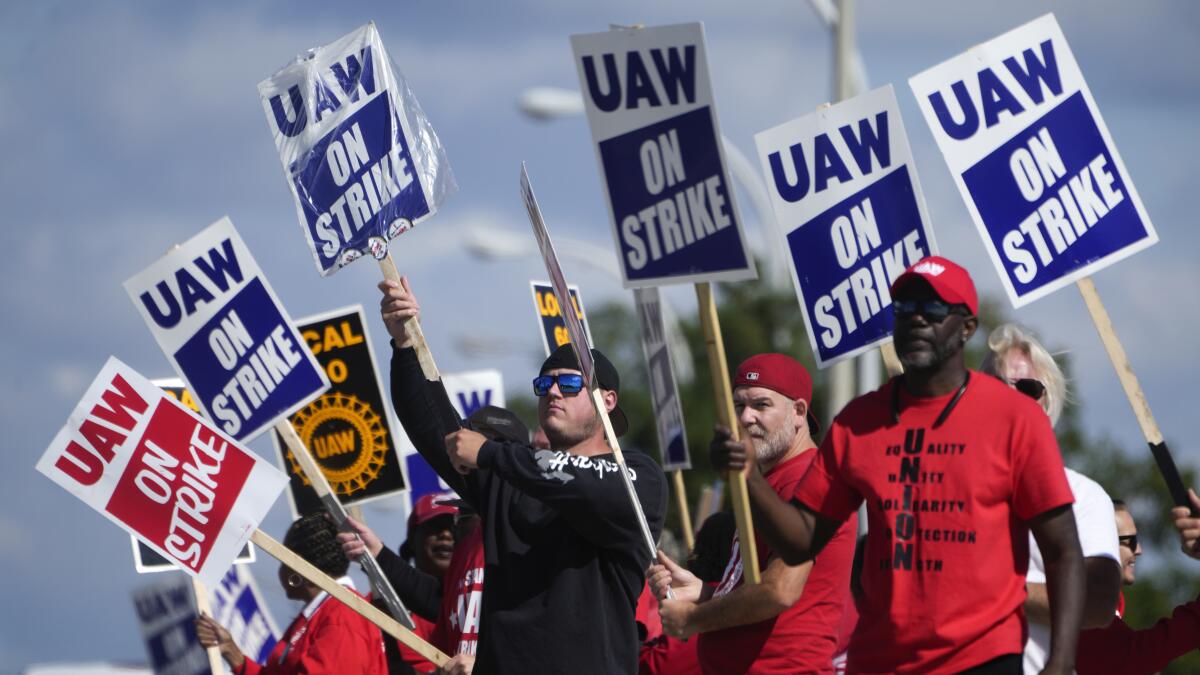
UAW STRIKE Ends: Ford’s Unprecedented 30% PAY Rise Could Shake Up Detroit Automakers
— The United Auto Workers (UAW) union has reached a tentative contract agreement with Ford. This development could signal the end of the nearly six-week-long strikes that have rocked Detroit automakers. However, this four-year deal still needs approval from Ford’s 57,000 union members.
The agreement could shape future negotiations with General Motors and Stellantis, where strikes are ongoing. UAW has urged all Ford workers to resume work, hoping to pressure GM and Stellantis into bargaining. More details on how this strategy will be implemented are expected soon.
In a video address, UAW President Shawn Fain announced that Ford offered a wage increase of 50% more than before the strike started on September 15th. UAW Vice President Chuck Browning, who served as the chief negotiator with Ford, disclosed that workers would see an overall wage increase of 25%. This would push the total pay rise over 30%, resulting in top-tier assembly plant workers earning above $40 per hour by contract’s end.
Before this agreement, all three automakers had suggested a pay rise of just 23%. Under the new deal, assembly workers will receive an immediate raise of 11% upon ratification — nearly matching all wage increases since 2007.

Video
US on HIGH ALERT: Potential Escalation in Middle East Sparks Fear
— The United States is ramping up its defenses in the Middle East. This action follows recent attacks by Iranian-backed forces on U.S. troops stationed in Syria, and Hezbollah militants assaulting Israeli forces along Lebanon’s northern border. Defense Secretary Lloyd Austin voiced his apprehension about a possible surge of assaults on U.S. personnel throughout the region.
Austin has commanded an undisclosed number of additional troops to gear up for deployment, with a focus on enhancing readiness and response capabilities. The Pentagon recently confirmed several drone attacks in Syria, one of which resulted in minor injuries at the At-Tanf garrison housing U.S. soldiers.
Secretary of State Antony Blinken emphasized that increasing U.S. presence is meant to deter any further escalation or attacks against Israel or U.S personnel abroad. In response to these heightened tensions, the State Department has issued a worldwide caution alert urging American citizens overseas to exercise increased vigilance.
The escalating cross-border attacks by Hezbollah are fueling concerns that war could potentially spread to include a second front along Israel’s northern border with Lebanon.

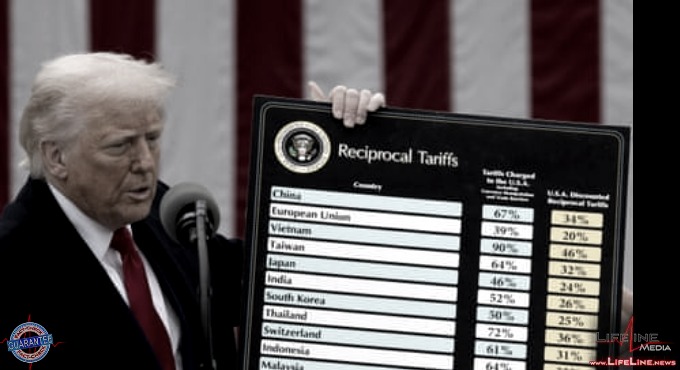
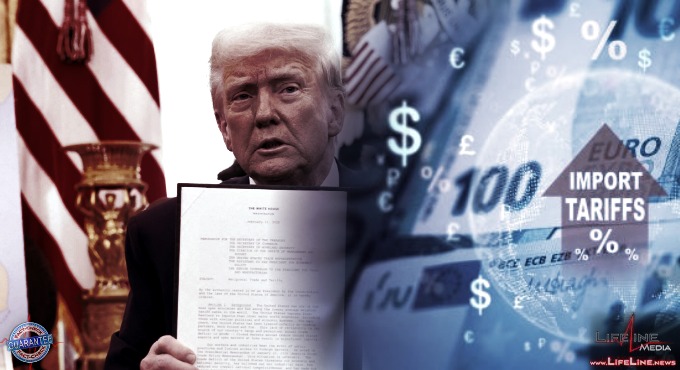
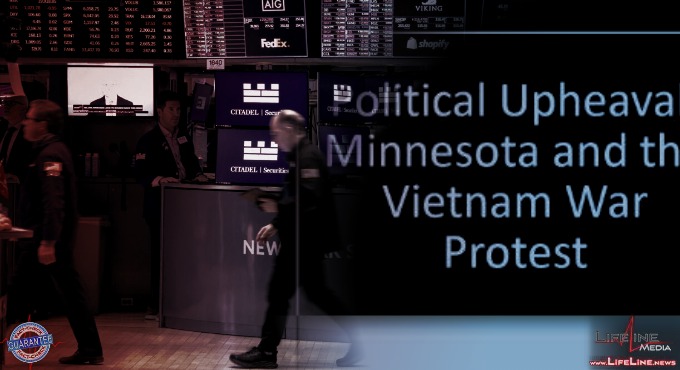
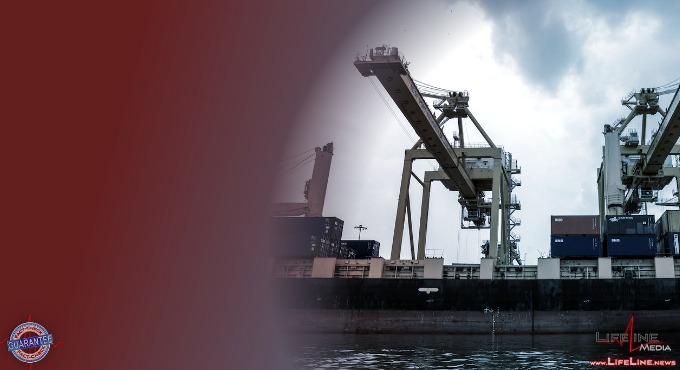
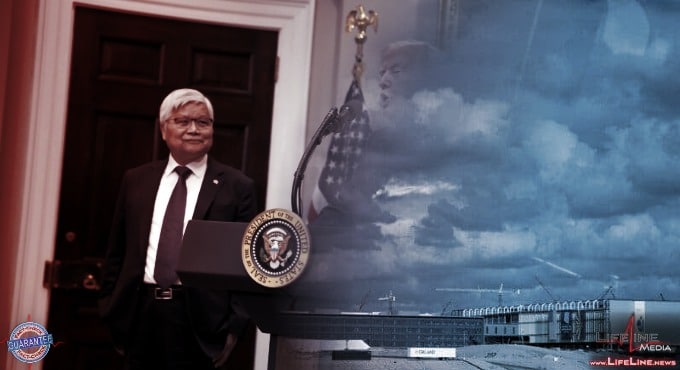

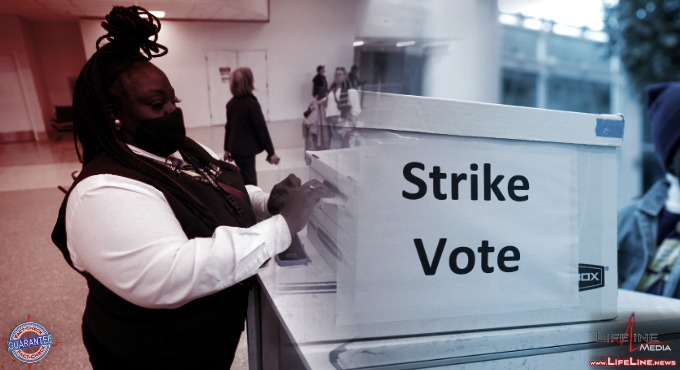

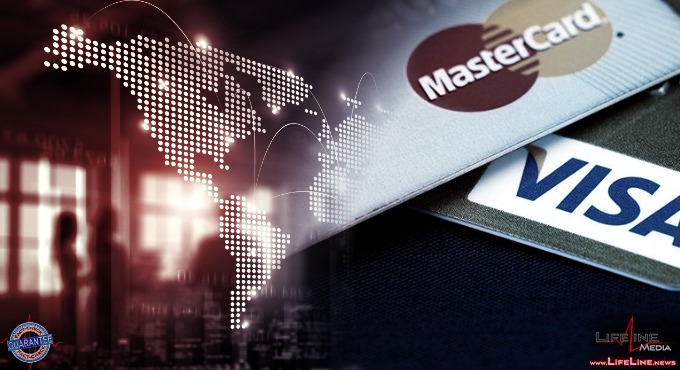
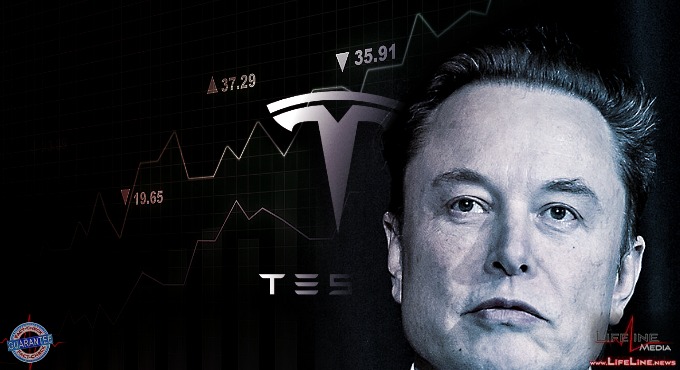
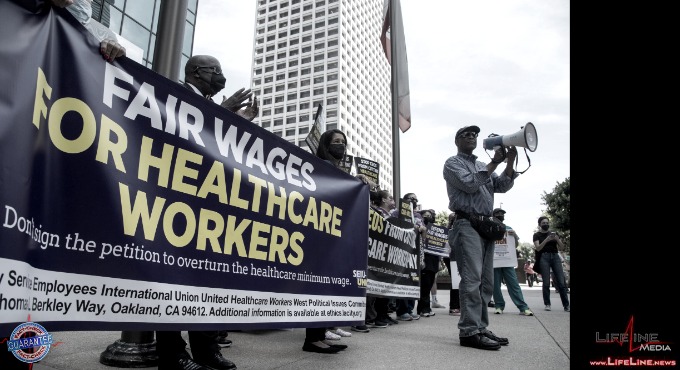





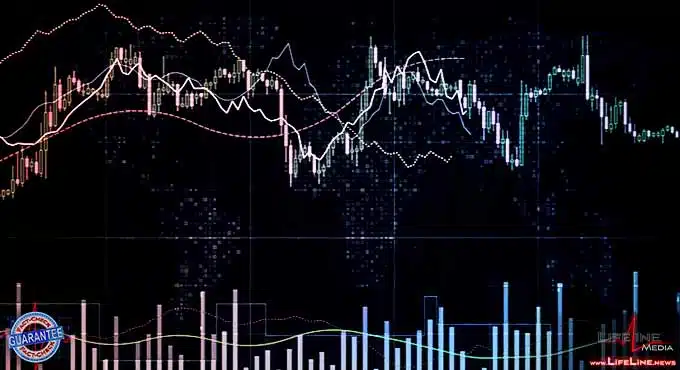

Social Chatter
What the World is SayingThe biggest looming crisis in the Midwest that no one is really talking about: the risk of electricity shortages & power outages. We’re seeing greater demand on our power grid, precisely...
. . .Labour continues to wreak havoc on the economy.
. . .The People’s Union USA is calling for a national "economic blackout" on Friday, urging Americans to boycott shopping for 24 hours. Social media is buzzing as the movement gains traction,...
. . .The People’s Union USA is calling for a national "economic blackout" on Friday, urging Americans to boycott shopping for 24 hours. Social media is buzzing as the movement gains traction,...
. . .Earnings for current week. Earnings for current week [MarketWatch: Stock Market News - Financial News - Earmings Stonkvest (stockbuyvest.com)](https://stockbuyvest.com/index.php/en/analysis/earnings) \#catalyst #event #earnings
. . .